Speaking Of Bees & Pesticides
jerijen
15 years ago
Related Stories

GARDENING FOR BUTTERFLIESGardening for the Bees, and Why It’s a Good Thing
When you discover how hard bees work for our food supply, you may never garden without them in mind again
Full Story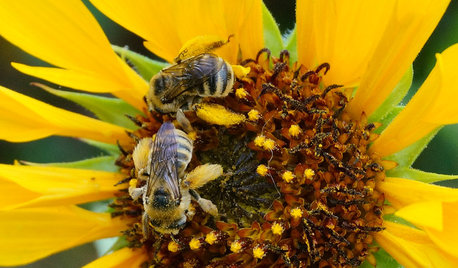
EARTH DAY12 Entertaining ‘Bee-haviors’ of Native Bees
The parade of pollinator antics is another reason to create a garden that nurtures native bees
Full Story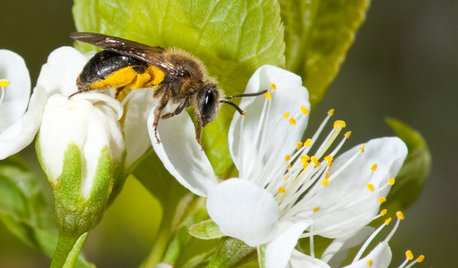
GARDENING GUIDESInvite Mining Bees to Your Garden by Planting Their Favorite Plants
Look for mining bees (Andrena) pollinating woodland wildflowers in U.S. gardens this spring
Full Story
EARTH DAYHow to Design a Garden for Native Bees
Create a garden that not only looks beautiful but also nurtures native bees — and helps other wildlife in the process
Full Story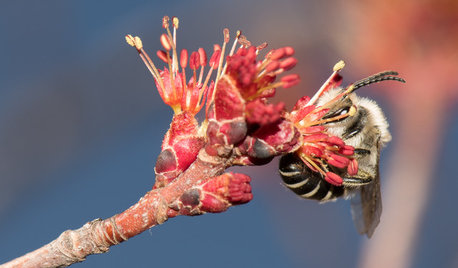
GARDENING GUIDESInvite Cellophane Bees to Your Garden by Providing Patches of Bare Soil
Look for cellophane bees (Colletes) pollinating flowering trees and shrubs in U.S. gardens this spring
Full Story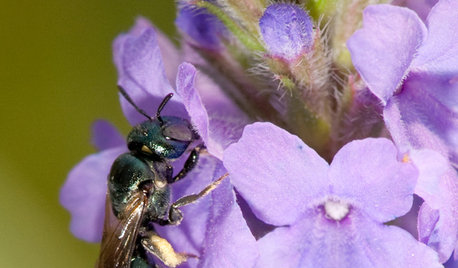
GARDENING GUIDESSmall Carpenter Bees Are Looking for a Home in Your Plant Stems
Provide flowers and nesting sites in your garden for this beautiful, tiny, metallic blue wild bee — your plants will thank you
Full Story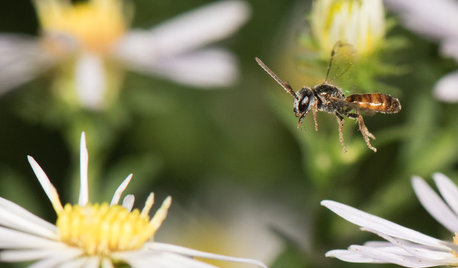
GARDENING GUIDESThis Tiny, Gentle Bee Keeps Busy
Look closely for small sweat bees visiting your flowers throughout the growing season
Full Story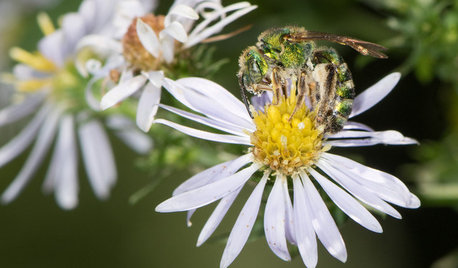
GARDENING GUIDESLook for Metallic Green Sweat Bees Visiting Your Garden This Fall
These beautiful sweat bees will dazzle and delight you with their bright emerald green color and midsummer and fall flower visiting
Full Story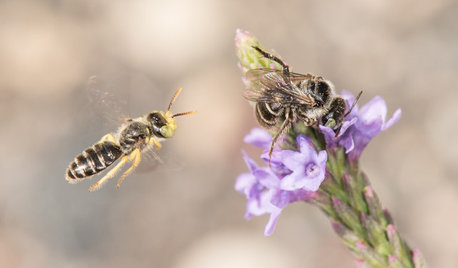
GARDENING GUIDESKeep an Eye Out for Fast-Moving Calliopsis Bees
These small native bees can often be seen foraging on vervain in the summer
Full Story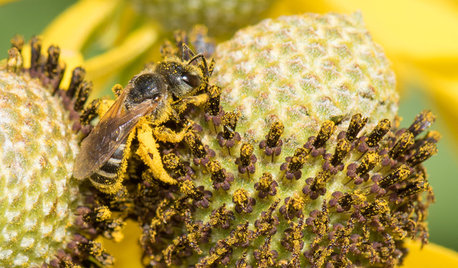
GARDENING GUIDESWelcome Sweat Bees to Your Garden Throughout the Growing Season
Look before you swat! These friendly sweat bees will feed on your sweat on a hot summer day, but their main buffet is flowers
Full Story









aliska12000
mauirose
Related Professionals
West Milford Landscape Architects & Landscape Designers · Glen Ellyn Landscape Architects & Landscape Designers · Horsham Landscape Architects & Landscape Designers · East Haven Landscape Contractors · Lake Saint Louis Landscape Contractors · Natick Landscape Contractors · North Ridgeville Landscape Contractors · San Pedro Landscape Contractors · West Haverstraw Landscape Contractors · Sun Valley Landscape Contractors · Lake Forest Swimming Pool Builders · Las Vegas Swimming Pool Builders · Long Branch Swimming Pool Builders · Euless Siding & Exteriors · Kenosha Siding & Exteriorscemeteryrose
sammy zone 7 Tulsa
jerijenOriginal Author
aliska12000
jerijenOriginal Author
jacqueline9CA
aliska12000
jerijenOriginal Author
jbcarr
collinw
lionessrose
aliska12000
jerijenOriginal Author
aliska12000
jerijenOriginal Author
luxrosa
aliska12000
aliska12000
jerijenOriginal Author
aliska12000
jbfoodie
jerijenOriginal Author
aliska12000
Terry Crawford
twotzus
darbardi
jerijenOriginal Author
aliska12000
jerijenOriginal Author
aliska12000
jerijenOriginal Author
gnabonnand
jeff_zephyr
aliska12000
Terry Crawford
wild_rose_of_texas
Terry Crawford
wild_rose_of_texas
anita22
aliska12000
jerijenOriginal Author
aliska12000
jerijenOriginal Author
aliska12000
remy_gw
jbfoodie
jerijenOriginal Author
aliska12000